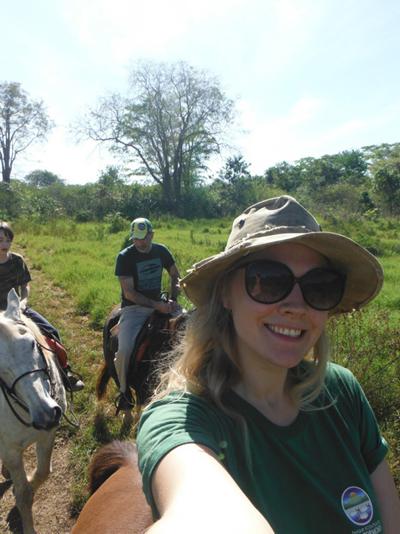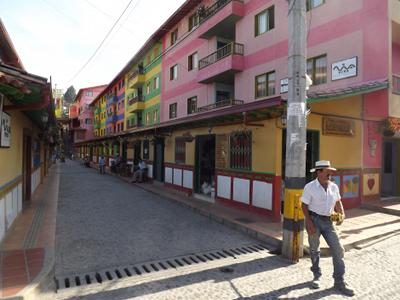
How you spend your year abroad is one of the most important decisions you will make during your degree course
Study Abroad
If you are not studying a modern language as a main component of your degree, you can choose to complete a four-year programme and expand your knowledge and experience by studying at a partner university in Europe or beyond for a whole year. Shorter study abroad opportunities, like summer schools, are also available.
Third Year Abroad
If you are on a programme with one or more modern languages as a main component of your degree, you spend a compulsory third year of your four-year programme abroad.
Opportunities for the third year abroad
As a modern linguist at Southampton, you receive an integrated linguistic and cultural learning experience. This starts from the very moment you arrive and continues throughout the second year of your course, during which there is an intensive programme of preparation for your residence abroad in your third year. This ensures you are equipped to make the most of what for many will be a once-in-a-lifetime opportunity to spend a substantial period living abroad.
In Southampton, we consider the third year to be an experience intrinsically different from a ‘gap year’ in form, opportunities for professional development, and general objectives. For this reason, whilst residing abroad you will also undertake assignments for us which are designed to complement your in-country activities and continue your development as linguists and culturally-aware professionals. Similarly, when you return to Southampton, our fourth year modules help you to develop even further by putting into practice what you learned abroad and by reflecting on the impact this experience has had on your personal growth, linguistic development and professional profile.
Most students prefer to spend the whole period in one location, as settling in and feeling fully integrated can take some time. However, our programmes allow some combined honours students studying two languages (or more ) at the same level in their second year to split their third year between two countries.
You can spend the third year either:
- As a British Council English language assistant in a school or college in a European country or further afield
- Studying at one or more of our partner universities in Europe or beyond (e.g. Latin America, Brazil or China) where your language or languages of study are spoken
- On a work placement
Whilst abroad you will continue to be supported by your tutors and your Personal Academic Tutor through email contact and regular meetings online, as well as continuing to have access to the university’s support services.
Residence abroad preparation
How you spend your year abroad is one of the most important decisions you will make during your degree course. This decision is taken early in your second year, so it is wise to begin to give it some thought, and perhaps do some research into how you may like to spend your year during your first year of study.
In the autumn of your second year, you receive detailed information and attend meetings with the year abroad team, your Personal Academic Tutor and students who have returned from their year abroad. This helps you decide which of the exciting options will be the most beneficial to you in terms of making the most of the experience.
Residence abroad: key contacts
Chair of Modern Languages and Linguistics Residence Abroad.
Ian McCall
Email: I.D.Mccall@soton.ac.uk
Study Abroad Administration Team
International Office
University of Southampton
Room 3107, Building 37,
Highfield Campus
Southampton
SO17 1BJ
Email: studyabroad@soton.ac.uk
Residence Abroad Language Coordinators
Chinese
Lu Rugang
Email: R.Lu@soton.ac.uk
French
Laura-May Leaf
Email: L.Leaf@soton.ac.uk
German
Adrian Sewell
Email: A.J.Sewell@soton.ac.uk
Portuguese
Fátima Cande
Email: F.Cande@soton.ac.uk
Spanish
Irina Nelson
Email: Irina.Nelson@soton.ac.uk
Study abroad student bloggers
Three of our current Modern Languages and Linguistics students share their study abroad experiences:



Other University of Southampton sites
Useful Downloads
Need the software?PDF Reader